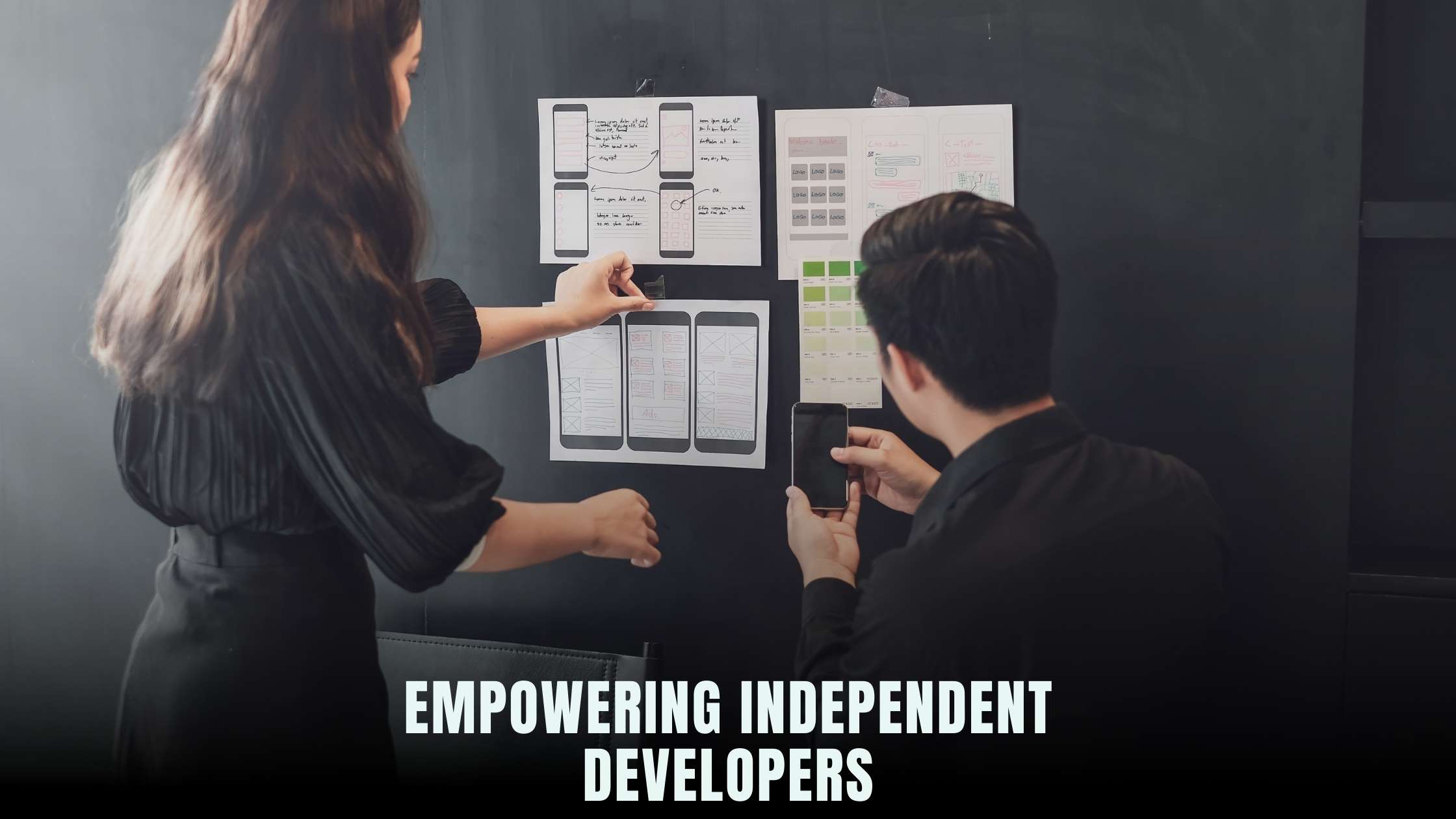Solo App Development: Is It Possible to Build an App Alone?
- WebOps Platforms Bug Tracking & Feedback Software Web Development & Design


The idea of building a mobile app alone is both daunting and intriguing for aspiring developers. With the rise of solo app developers and indie developers in the tech industry, many wonder whether it’s feasible to create a successful app without a team. In this article, we’ll explore the possibilities and challenges of solo app development, debunk common misconceptions, and provide insights for individuals embarking on this journey.
The Myth of Solo App Development
There’s a prevalent myth that building a mobile app requires a large team of developers, designers, and marketers. While collaboration can certainly enhance the app development process, it’s not necessarily a prerequisite for success. Solo app developers have proven time and again that with the right skills, dedication, and resources, it’s possible to create innovative and profitable apps independently.
Reality Check: Solo App Development Strategies
While solo app development presents unique challenges, there are several strategies that can help solo developers succeed:
- Focus on Core Competencies: As a solo developer, it’s crucial to focus on your core competencies and prioritize tasks that align with your skill set. Whether it’s coding, design, or marketing, allocating your time and resources wisely can maximize productivity and efficiency.
- Leverage SaaS Tools: Leveraging SaaS tools and platforms can streamline various aspects of the app development process, from project management and design to marketing and analytics. By utilizing these tools, solo developers can save time and effort while maintaining high-quality standards.
- Community Engagement: Engaging with developer communities, forums, and online resources can provide valuable support, feedback, and guidance throughout the app development journey. Networking with fellow developers and seeking mentorship can help solo developers overcome challenges and stay motivated.
- Iterative Development: Adopting an iterative development approach allows solo developers to build and refine their apps incrementally. By releasing minimum viable products (MVPs) and gathering user feedback, solo developers can iterate and improve their apps over time, leading to better outcomes and user satisfaction.
- Outsourcing and Collaboration: While solo developers may handle the majority of tasks themselves, outsourcing certain aspects of the development process, such as design or marketing, can be beneficial. Collaborating with freelancers or agencies can leverage specialized expertise and accelerate the app’s growth and success.
Relevant SaaS Products for Solo App Development
Before we conclude, let’s explore some relevant SaaS products that cater to solo app developers:
- GitHub: GitHub is a code hosting platform that allows developers to collaborate on projects, manage code repositories, and track changes. Solo developers can utilize GitHub for version control, issue tracking, and collaboration with other developers.
- Figma: Figma is a collaborative interface design tool that enables solo developers to create, prototype, and collaborate on app designs in real-time. With features like multiplayer editing and cloud-based storage, Figma streamlines the design process for solo developers.
- Firebase: Firebase is a comprehensive mobile development platform by Google that provides backend services, analytics, and app growth tools. Solo developers can leverage Firebase for features like authentication, real-time database, and cloud messaging, simplifying app development and deployment.
- Buffer: Buffer is a social media management platform that allows solo developers to schedule and analyze social media posts across multiple platforms. With features like content scheduling, analytics, and team collaboration, Buffer helps solo developers manage their app’s online presence effectively.
- Canva: Canva is a graphic design platform that offers a wide range of design tools and templates for creating marketing materials, graphics, and app assets. Solo developers can use Canva to design app icons, promotional graphics, and social media posts without the need for extensive design skills.
Conclusion
In conclusion, solo app development is not only possible but also achievable with the right mindset, skills, and resources. While it may present challenges, solo developers have the opportunity to create innovative and successful apps independently. By leveraging SaaS tools, adopting effective strategies, and engaging with the developer community, solo developers can turn their app ideas into reality and achieve their goals.
Subscribed.FYI Deals: Empowering Solo App Developers
Transitioning to a solo app development journey can be intimidating, but with the right tools and resources, it becomes significantly more manageable. Subscribed.FYI offers a comprehensive platform where solo developers can discover and compare various SaaS products tailored to their specific needs, including those related to app development, design, and marketing.
With features like subscription management and comprehensive insights, Subscribed.FYI empowers solo developers to make informed decisions about their SaaS stack, ensuring they have the necessary tools to succeed in their app development endeavors. By signing up for free, solo developers can unlock exclusive deals and savings on a wide range of SaaS products, enabling them to optimize their app development process and achieve their goals faster.
Relevant Links
By incorporating these SaaS products into their app development workflow, solo developers can streamline the process and maximize their chances of success in the competitive app marketplace.








